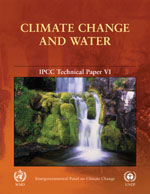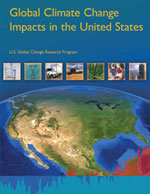How Are Changes in Climate Evaluated and Predicted?
The IPCC is a scientific intergovernmental body set up by the World Meteorological Organization (WMO) and by the United Nations Environment Programme (UNEP) in 1988. The IPCC was established to provide decision makers and others interested in climate change with an objective source of information about climate change. The IPCC does not conduct any research, nor does it monitor climate-related data or parameters. Its role is to assess on a comprehensive, objective, open and transparent basis the latest scientific, technical and socioeconomic literature produced worldwide relevant to the understanding of the risk of human-induced climate change, its observed and projected impacts, and options for adaptation and mitigation.
The U.S. Global Change Research Program (USGCRP) was established by Congress under the Global Change Research Act of 1990. It is a multiagency program that coordinates U.S. federal support for scientific research and observing systems on climate and environmental change in the United States as well as globally. The U.S. Environmental Protection Agency is one of the 13 participating agencies in the program. The planning and implementation of EPA’s climate research and assessment activities are closely coordinated with the overall USGRCP.
![[logo] US EPA](https://www.epa.gov/epafiles/images/logo_epaseal.gif)

